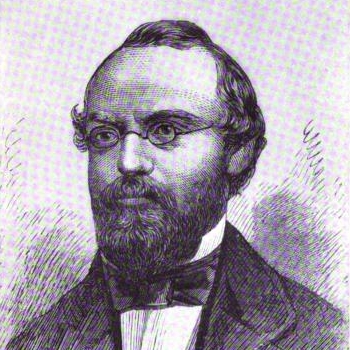- Carl Bergmann
Infobox musical artist
Name = Carl Bergmann

Background = classical_ensemble
Born = 1821Ebersbach ,Saxony
Died = 1876
New York
Genre = Classical
Occupation = Conductor
Years_active = 1850-1876
Associated_acts = New York Philharmonic
Notable_instruments =Carl Bergmann (born
Ebersbach ,Saxony , 1821, died New York, 1876) was aGerman-American cellist and conductor.Bergmann came to the United States in 1850 as first cellist in the Germania Orchestra, a touring band of young German musicians. When the conductor of that orchestra resigned the same year, Bergmann took over. [Upton (1908), p. 52] The Germania Orchestra subsequently based itself in
Boston before disbanding in 1854. During this period Bergmann also directed theHandel and Haydn Society of that city. After this Bergmann went to Chicago and was immediately invited to direct the Chicago Philharmonic Society. However, he left quickly after giving only two concerts because the Chicago musicians intrigued against him. [Upton (1908), p. 259]When
Theodore Eisfeld , conductor of the New York Philharmonic Society, became sick for the last concert of the 1854-1855 season, Bergmann replaced him, directing Wagner's "Tannhauser " overture. This concert was so successful that Bergmann became sole conductor for the 1855-1856 season. [Thomas (1905), p. 36] He also played cello in a renowned piano quintet that included Theodore Thomas on first violin andWilliam Mason on piano.Eisfeld returned to conduct the Philharmonic Society for the 1856-1857 and 1857-1858 seasons, but Bergmann returned to the podium the next season, and shared the podium with Eisfeld between 1859 and 1865. In 1865 Eisfeld returned to Europe, and Bergmann continued as sole conductor of the Philharmonic Society until his death in 1876.
In his autobiography, Theodore Thomas described Bergmann as "a talented musician and a fair 'cello player" [Thomas (1905), p. 35] but went on to criticize him as follows: cquote|He gave the impression that he never worked much, or cared to do so. He lacked most of the qualities of a first-rank conductor, but he had one great redeeming quality for those days which soon brought him into prominence. He possessed an artistic nature ... [Thomas (1905), p. 36] George Upton wrote: cquote|With all his ability and his scholarship, however, Bergmann was not an industrious worker, nor was he regardful of his duties. ... At last he gave himself up to an indolent, pleasure-loving manner of life, and this alienated many of his musical associates. Near the end of his career he became very despondent. Friends abandoned him, and he died at last in a New York hospital in 1876, almost alone and forgotten. [Upton (1908), p. 55]
Conductors of the New York Philharmonic Society, 1855 - 1876
* 1855-1856 Bergmann
* 1856-1858 Theodore Eisfeld
* 1858-1859 Bergmann
* 1859-1865 Bergmann and Eisfeld
* 1865-1876 Bergmann [Thomas (1905), p. 149]References
Bibliography
*cite book
first=Theodore
last=Thomas
authorlink=Theodore Thomas (conductor)
coauthors=George P Upton (ed.)
title=Theodore Thomas: a Musical Autobiography
location=Chicago
publisher=A.C. McClurg & Co.
year=1905
oclc=932580
url=http://books.google.com/books?id=yPQ5AAAAIAAJ
* cite book
title=Musical Memories: My Recollections of Celebrities of the Half Century: 1850-1900
first=George P
last=Upton
location=Chicago
publisher=A.C. McClurg
year=1908
oclc=392372
url=http://books.google.com/books?id=Dco5AAAAIAAJ
Wikimedia Foundation. 2010.
